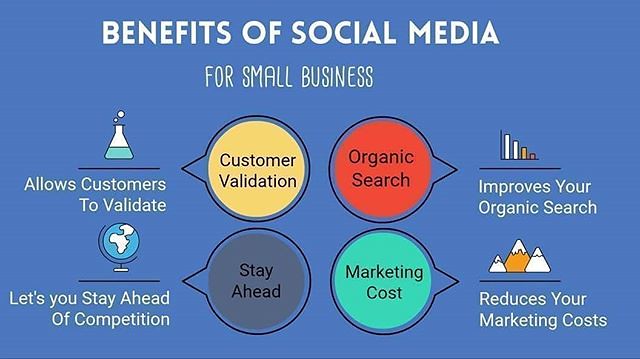In today’s digital landscape, social media marketing for small businesses is more crucial than ever. If you’re a small business owner looking to enhance your online presence, harnessing the power of social media can be a game-changer. Not only does it allow you to connect with your audience, but it also opens the door to effective marketing strategies that can boost your sales and brand awareness. Let’s dive into the best practices and strategies that can help you navigate the world of social media marketing.
Why Social Media Marketing for Small Businesses
Social media platforms like Facebook, Instagram, Twitter, and LinkedIn provide unparalleled opportunities for small businesses. With billions of active users, these platforms offer a cost-effective way to reach potential customers. Here’s why social media marketing is essential:
- Brand Awareness: Establishing a presence on social media helps your business become recognizable to your target audience.
- Engagement: Social media allows for two-way communication, enabling you to engage with your customers directly.
- Cost-Effective: Compared to traditional advertising, social media marketing is generally more affordable, making it accessible for small businesses.
- Targeting: You can tailor your marketing efforts to specific demographics, ensuring you reach the right audience.
Benefits of social media marketing for small businesses
- Boosts brand awareness
- Decrease marketing costs
- Understand your audience
- Enhances website traffic
- Increase brand awareness
- Generate leads and customers
- Build relationships

How to Do Social Media Marketing for Small Business
So, how do you get started with social media marketing for small businesses? Here’s a step-by-step guide to help you create an effective strategy.
1. Define Your Goals
Before diving into social media, it’s important to define what you want to achieve. Are you looking to increase brand awareness, drive traffic to your website, or boost sales? Having clear goals will guide your strategy. Also: Best WordPress Hosting Right Fit for Your Site
2. Know Your Audience
Understanding your target audience is key. Research their demographics, interests, and online behaviors. This information will help you tailor your content and choose the right platforms for your business.
3. Choose the Right Platforms
Not all social media platforms are created equal. Depending on your target audience, some platforms may be more effective than others. For instance, Instagram is great for visually appealing products, while LinkedIn is ideal for B2B marketing.
4. Create Quality Content
Content is king! Focus on creating high-quality, engaging content that resonates with your audience. This can include:
- Images and Videos: Visual content tends to perform better than text alone.
- Stories and Reels: Short, engaging stories can capture attention quickly.
- User-Generated Content: Encourage your customers to share their experiences with your brand.
5. Engage with Your Audience
Social media is all about interaction. Respond to comments, ask questions, and participate in conversations. This not only builds community but also fosters customer loyalty.
6. Utilize Paid Advertising
While organic reach is important, paid advertising can significantly enhance your visibility. Platforms like Facebook and Instagram offer targeted advertising options that can help you reach specific demographics effectively.
7. Analyze and Adjust
Use analytics tools to track the performance of your social media campaigns. Assess what works and what doesn’t, and be ready to adjust your strategy accordingly. Regularly reviewing your efforts will help you optimize your approach.
How to Choose a Social Media Marketing Agency for Small Business
If managing social media seems daunting, you might consider hiring a social media marketing agency. Here’s how to choose the right one for your small business:
1. Evaluate Their Experience
Look for agencies with experience in your industry. They should understand the unique challenges and opportunities your business faces.
2. Check Their Portfolio
Review their previous work to gauge their effectiveness. A strong portfolio can provide insights into their creativity and success.
3. Ask for Case Studies
Request case studies or references from past clients. This will give you an idea of their track record and how they’ve helped other small businesses.
4. Discuss Strategy
A good agency will take the time to understand your goals and create a tailored strategy. Make sure they prioritize your objectives and have a clear plan of action.
5. Consider Budget
While cost shouldn’t be the only factor, ensure their pricing aligns with your budget. Look for agencies that offer transparent pricing and value for their services.
Is Good Social Media Marketing for Small Business Worth It?
Absolutely! Good social media marketing can lead to increased visibility, enhanced customer engagement, and improved sales. The key is to approach it strategically. By implementing the right practices and continuously refining your approach, social media can become one of your most effective marketing tools.
FAQs About Social Media Marketing for Small Business
What platforms should I focus on for my small business?
The platforms you choose should depend on your target audience. For visual products, consider Instagram and Pinterest. For professional services, LinkedIn is a great option. Facebook is versatile and can work for various types of businesses.
How often should I post on social media?
Consistency is key. Aim for a balanced posting schedule that keeps your audience engaged without overwhelming them. Generally, posting 3-5 times a week is a good starting point.
Can I do social media marketing on my own, or do I need an agency?
Many small business owners successfully manage their own social media. If you have the time and skills, it can be effective. However, if you feel overwhelmed or lack expertise, hiring an agency can provide the professional touch you need.
How can I measure the success of my social media marketing?
Use analytics tools to track metrics like engagement rates, follower growth, website traffic, and conversion rates. These metrics will help you understand the effectiveness of your campaigns.
What type of content works best on social media?
Visual content, such as images and videos, tends to perform well. Engaging posts that encourage interaction—like polls, questions, or contests—can also boost engagement.
